TPPA
PROTEST Wellington 15th.August 2015 Speaker Bryan Bruce
Bryan Bruce is an award winning documentary maker and author
Citizens face Police armed with tasers at Wellington TPPA protest march
By Frank Macskasy
16
August, 2015
At
least five weapons were clearly visible, with other policemen and
woman wearing bulky jackets that may or may not have concealed more
of the devices.
.
.
NZ,
Wellington, 15 August –
Anti-TPPA protesters, many of them young people in their teens and
early 20s, faced off against police armed with tasers on the steps of
Parliament.
Believed
to be the first time that armed police have deployed tasers in a
non-violent, non-threatening situation, at least five police officers
were visibly carrying the potentially lethal devices on their belts;
.
.
.
.
.
At
least five weapons were clearly visible, with other policemen
and woman wearing bulky jackets that may or may not have concealed
more of the devices.
Though
there was some minor jostling between one protester and a
Parliamentary security guard, there was no violence or any other
physical contact between police and members of the public.
The
confrontation began when a lone protester made her way to the top of
the Parliamentary steps, and seated herself, adopting a meditating
position. For a short time, three police attempted to persuade her to
move, though no force was used.
.
.
She
was followed by others, who also jumped or skirted around the
security fence separating the grassy area from the paved
Parliamentary forecourt.
.
.
As
their numbers swelled to approximately a hundred, extra police
arrived quickly and with Parliamentary Security, formed a cordon
across the steps leading up to Parliament.
.
.
March
organisors and Marshalls attempted to quell the situation by asking
people to move back from the steps, without much success.
.
.
Eventually,
jostling and shouting gave way to a calmer atmosphere as March
organisors encouraged a constant stream of speakers to address the
crowd. The tiny volatile minority, numbering perhaps half a dozen,
joined others seated on the steps. One activist played his guitar and
sang songs, though at one point he declined a request for “anything
by Dave Dobbin“.
.
.
After
about a hour, the crowd on the Parliamentary forecourt dispersed of
their own volition. Police numbers also reduced, with officers
leaving the scene.
.
.
There
was no apparent reason for tasers to be deployed on this occasion.
The sight of these weapons incited many in the crowd to angry
outbursts toward the police.
More
than one person was overheard asking what possible use four or
five tasers would have been against a crowd numbering in the
hundreds.
One
person, who requested anonymity, said to this blogger;
“Whoever authorised these guns to be brought out needs their head read. It’s a grim day when cops feel the need to show these things when they’re faced with ordinary New Zealanders engaged in lawful protest. It’s like something out of ‘Sleeping Dogs’. Really, is this where we’ve ended up, armed cops facing off against women and kids? God help us.”
On
this occasion, a tense situation was prevented from escalation not by
show of force, but by the wit of organisors who distracted the ‘hot
heads’ and encouraged dialogue and engagement.
The
best strategy in this stand-off was patience.
Coverage from RT
‘No to Corporate greed’: Thousands of Anti-TPP protesters rally in New Zealand
15
August, 2015
Thousands
of demonstrators gathered throughout New Zealand to speak out against
the Trans Pacific Partnership (TPP) trade deal on Saturday. Extra
police were called in as protesters pushed through barriers in front
of the country's parliament building.
Auckland
saw the biggest turnout, with an estimated 5,000 people calling on
the New Zealand government to “walk
away”from
the TPP agreement. Many held placards reading “Don't
trade our needs for corporate greed,” and “Enough
is enough.”
The #TPPANoWay march in Auckland is huge. New Zealanders don't want this deal.pic.twitter.com/LRfLb22RcF
— David Tong (@Davidxvx) August 15, 2015
Video
footage shows a demonstrator on stage in the city's Aotea Square
asking “Who's
got the power?” Energetic
demonstrators then respond by saying “We've
got the power!”
After
being addressed by opposition politicians and campaigners, the
demonstrators marched down Queen Street to the US Consulate building.
Earlier
this week, the US Consulate emailed American citizens living in New
Zealand, advising them to avoid the march.
“We
urge citizens to avoid the protest march route as even demonstrations
intended to be peaceful can turn confrontational. We remind citizens
to always exercise caution when in the vicinity of any large
gatherings, protests, or demonstrations,” the
consulate wrote.
Sit in on steps of Parliament. #TPPANoWaypic.twitter.com/LYOtEslNEQ
— SaveOurSchoolsNZ (@Dianne_Khan) August 15, 2015
Meanwhile,
police in Wellington were called in to help security staff after
a “small
group tried to move up the steps of parliament before being stopped
by police and security,” Wellington
Police area commander Inspector Chris Bensemann said, as quoted by
The New Zealand Herald.
He
added that officers were “able
to contain” the
protesters to the bottom of the steps. No arrests were made.
In
Nelson, more than 500 people marched through the city, holding up
traffic and singing songs written for the protest. Flags representing
the Nurses Union, Labour and Green parties, and the Public Service
Association could be seen in the crowd.
Large
turnouts were also reported in Christchurch, Hamilton and Dunedin.
Demonstrations took place in 21 cities and towns throughout the
country, according to Radio New Zealand.
Dunedin #TPPANoWay rally the biggest yet. Hundreds of people. pic.twitter.com/eZ0IuYVyRm
— Metiria Turei (@metiria) August 15, 2015
The
controversial TPP deal would involve the US and 11 other Asia-Pacific
countries: Australia, Brunei, Canada, Chile, Japan, Malaysia, Mexico,
New Zealand, Peru, Singapore, and Vietnam, leading to unfettered free
trade and empowering big business in the region.
21 marches, 25000 voices. Delivering 1 message loud & clear all across Aotearoa
@ItsOurFutureNZ@NZGreens#TPPANoWaypic.twitter.com/RqJlqdYkDu
— charlotte (@charliehayes) August 15, 2015
Those
against the deal have objected to the secrecy surrounding talks, and
opponents in New Zealand say that many of the provisions will
undermine the country's sovereignty, giving transnational
corporations huge influence over the nation's laws and regulations.
“Make
the TPPA document available for public examination before you sign it
– not after,” documentary
filmmaker Bryan Bruce said, addressing protesters in Wellington.
Four
days of talks in Hawaii to finalize the deal stalled earlier this
month after participating countries failed to reach an agreement. New
Zealand Prime Minister John Key said last week that he expects it to
be signed by the end of this year.
TPP
protests 'send a clear message'
16
August, 2015
A
prominent opponent of the Trans-Pacific Partnership (TPP) says the
number of people throughout New Zealand who turned up to march in the
rain against the deal sends a strong signal to the Government that
it's not wanted.
Thousands
of people throughout the country protested publicly yesterday, with
marches and rallies in 21 cities and towns.
Negotiations
for the proposed trade deal - involving New Zealand and 11 other
countries - stalled
in Hawaii two weeks ago,
but the Government still
hopes it can be signed this year.
In
Auckland, organisers estimated 10,000 people marched down Queen
Street and gathered outside the US consulate in Customs St East,
chanting slogans.
Auckland
University law professor Jane Kelsey said yesterday's turnout showed
the Government how unpopular the deal was.
"I'm
no good at numbers, I'm just really happy so many people turned up in
this lousy weather, not just in Auckland but throughout the
country...I think the turnout has put paid to any suggestions by the
trade minister that people are politically irrelevant for opposing
this deal," she said.
"Over
the last couple of months people come to understand the issues,
especially as those like the Doctors for Healthy Trade have become
more public in their concerns, and as the window for doing the deal
closes tighter I think people are now taking it really seriously."
A
member of the group Doctors for Healthy Trade, Dr Joshua Freeman,
speaking at Aotea Square in Auckland's CBD, said the deal would
threaten New Zealanders' healthcare, and make medicines more
expensive.
He
said under the deal, New Zealand would get less medicines for the
same amount of money.
"The
price of medicines will go up, it will have to be made up somehow,
through the health budget, it may mean other areas of the health
budget are diverted -to spend more on medicines," he said.
Dr
Freeman said it was unlikely the health budget would be able to
expand enough to cover the shortfall.
He
said there would also be problems formulating health policy.
"If
we wanted to be able to change our food labelling laws, or put
restrictions on the marketing of unhealthy foods to children in
future, then that could be met with a challenge from industry,"
he said.
In
Wellington, an estimated 8,000 people marched to Parliament Grounds,
where some protesters pushed through barricades in an attempt to
reach the steps of Parliament.
The
police said they were able to stop them before they got there, and no
arrests were made.
A
spokesperson for the campaign group It's Our Future, Edward Miller,
said the protest let the Government know how angry the public was
over the secrecy surrounding the negotiations.
"If
this deal was was being negotiated in the light of day then it would
have fallen apart a long time ago. This is fundamentally
undemocratic, and it cuts away our rights, it attacks our state-owned
enterprises, and our health system, it's not in anyone's interest in
this country," he said.
It
was also raining in Christchurch, where about 1000 people protested
in Hagley Park.
One
of them, Bill, told Radio New Zealand News signing the TPP would be a
big mistake.
"It's
only aimed to help those at the top, those running low-wage
economies, there's no reason for us to accept rock-bottom wages, we
cannot compete with those at the bottom of the heap, we should be
competing with those at the top, and the TPPA won't help us to do
that in any way," he said.
And
in Dunedin, where 1500 people marched up George St to the Octagon, an
organiser, Jen Olsen, said it was the fourth protest held in the city
and by the far the biggest.
"If
the tide of political and public opinion turns against the TPP, the
National Party are likely to think this could be a very unpopular
thing for them, very unpopular come the next election, once people
find out the consequences," she said.
Professor
Jane Kelsey said the protesters would continue to fight the deal.
"The
problem is, everything's underground, so we're going to have to wait
until either the Government tells us, or more likely, someone from
offshore tells us, what's happening," she said.



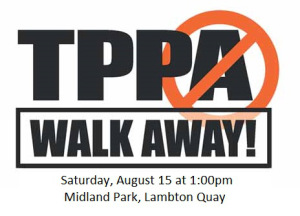
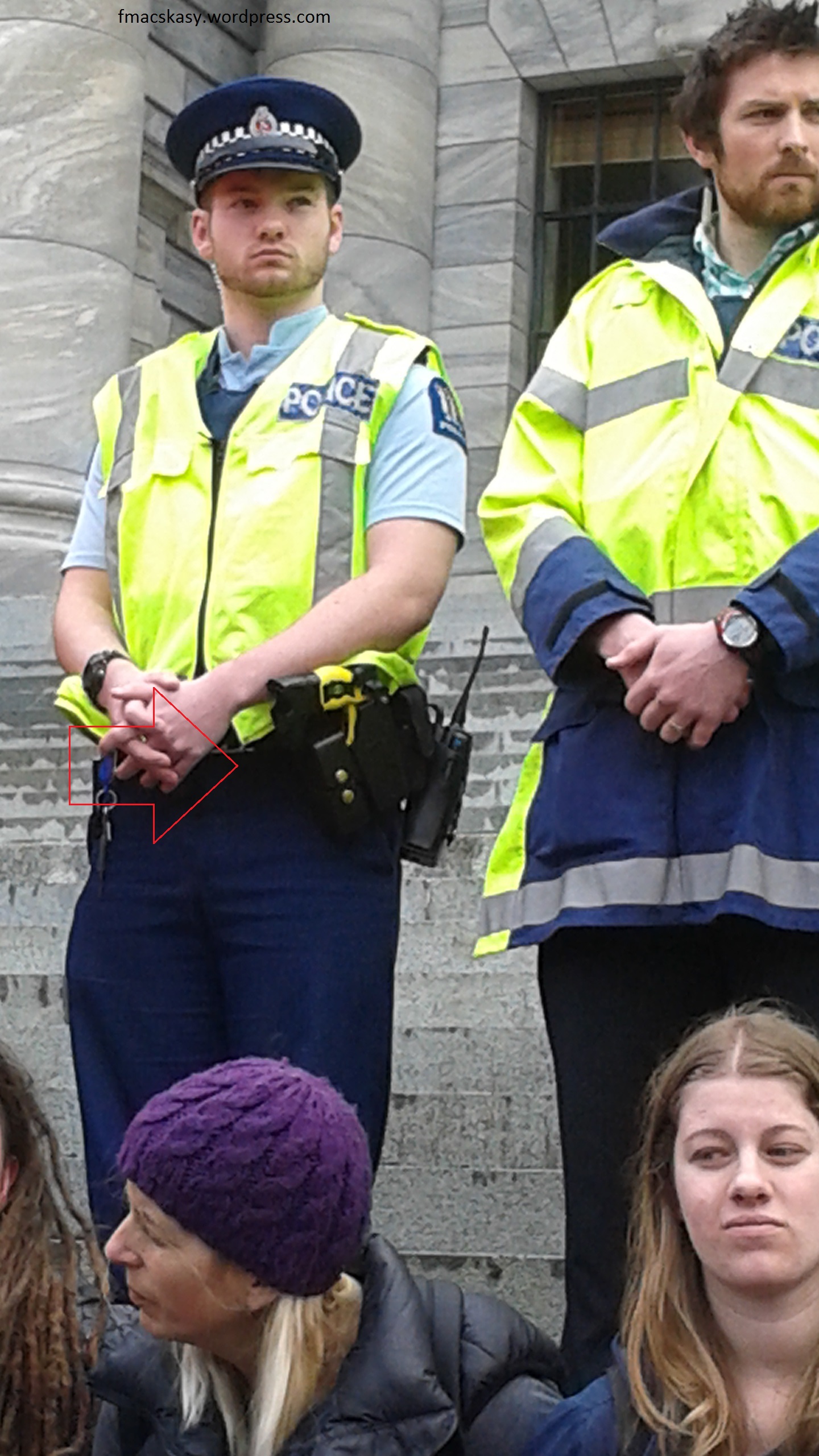
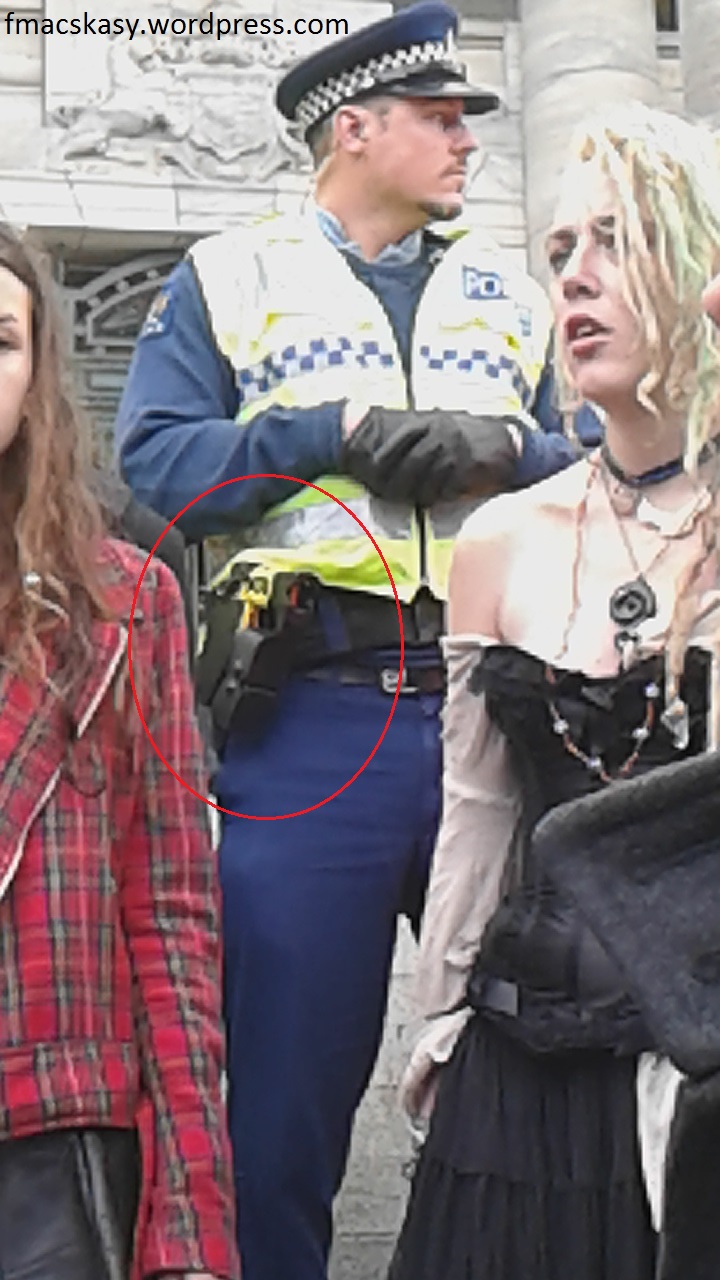
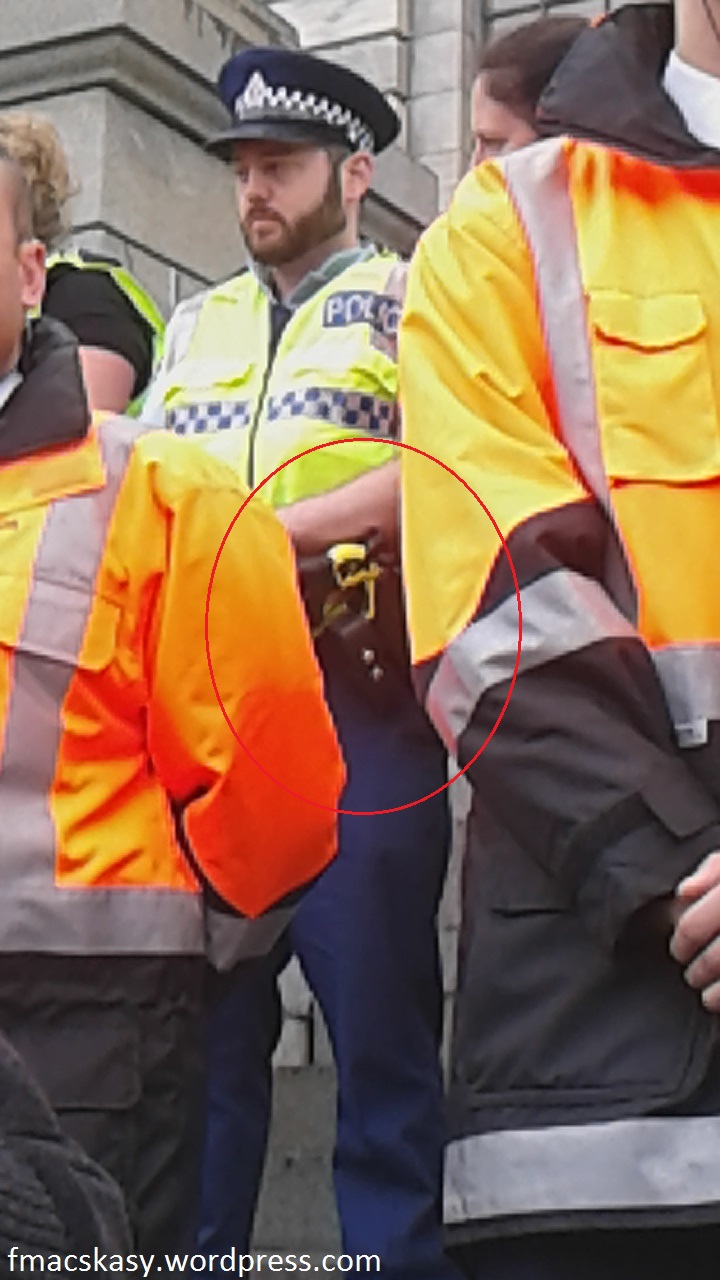
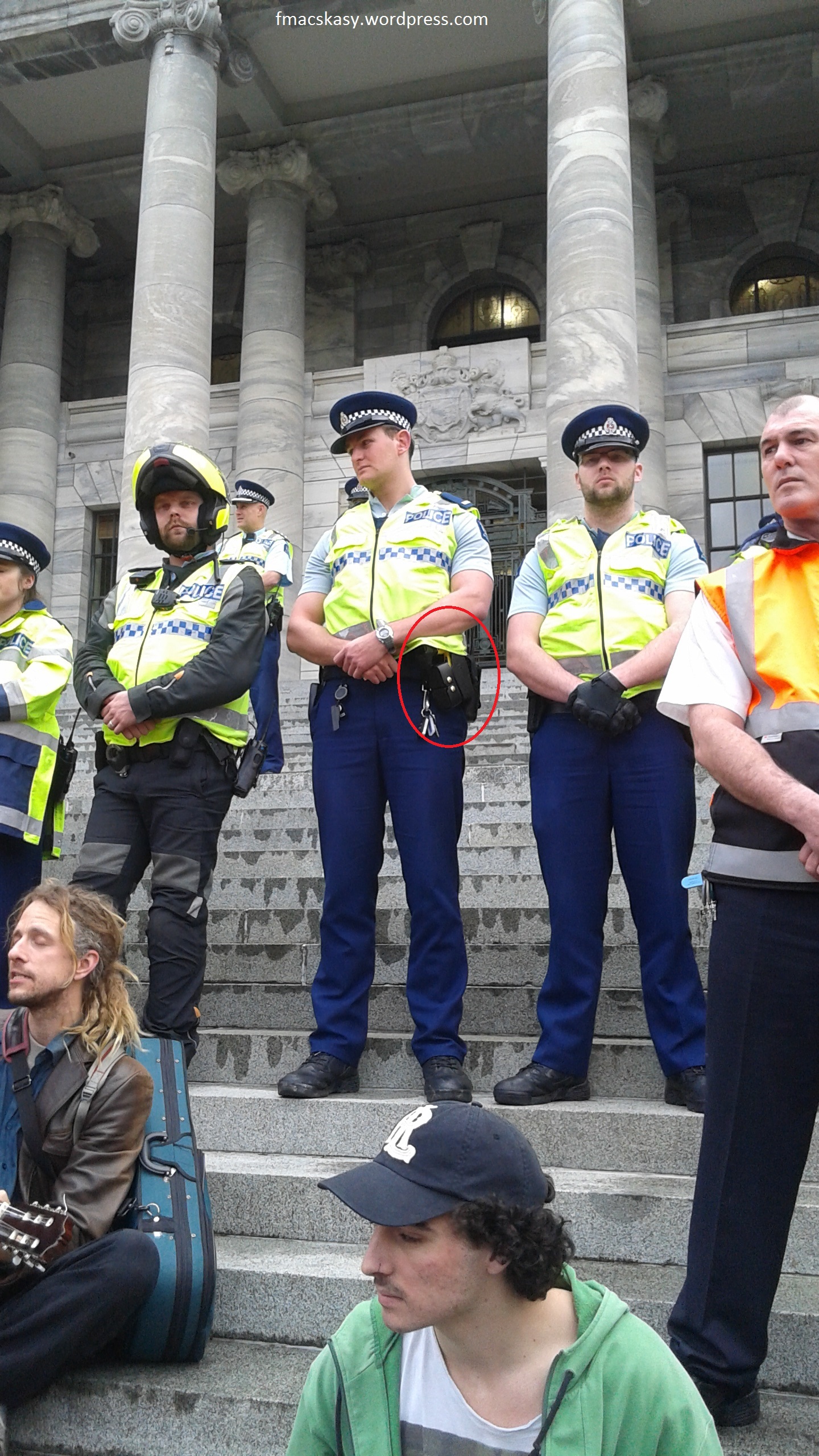
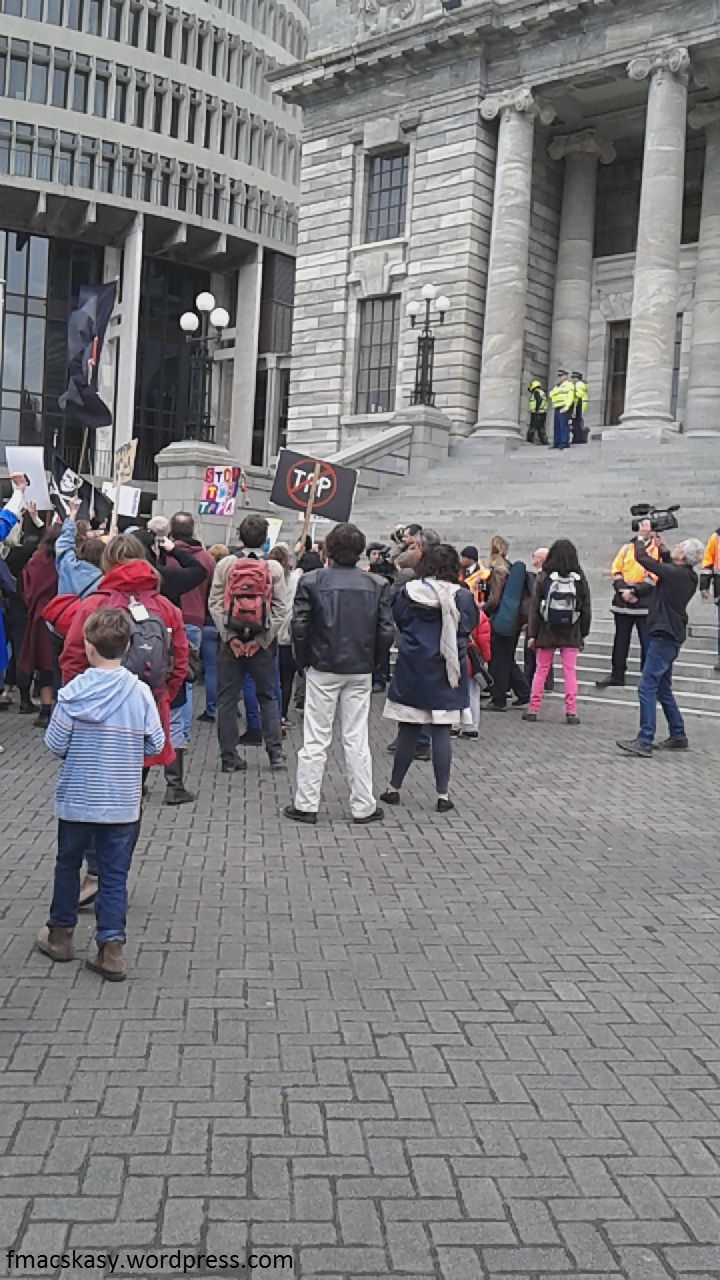
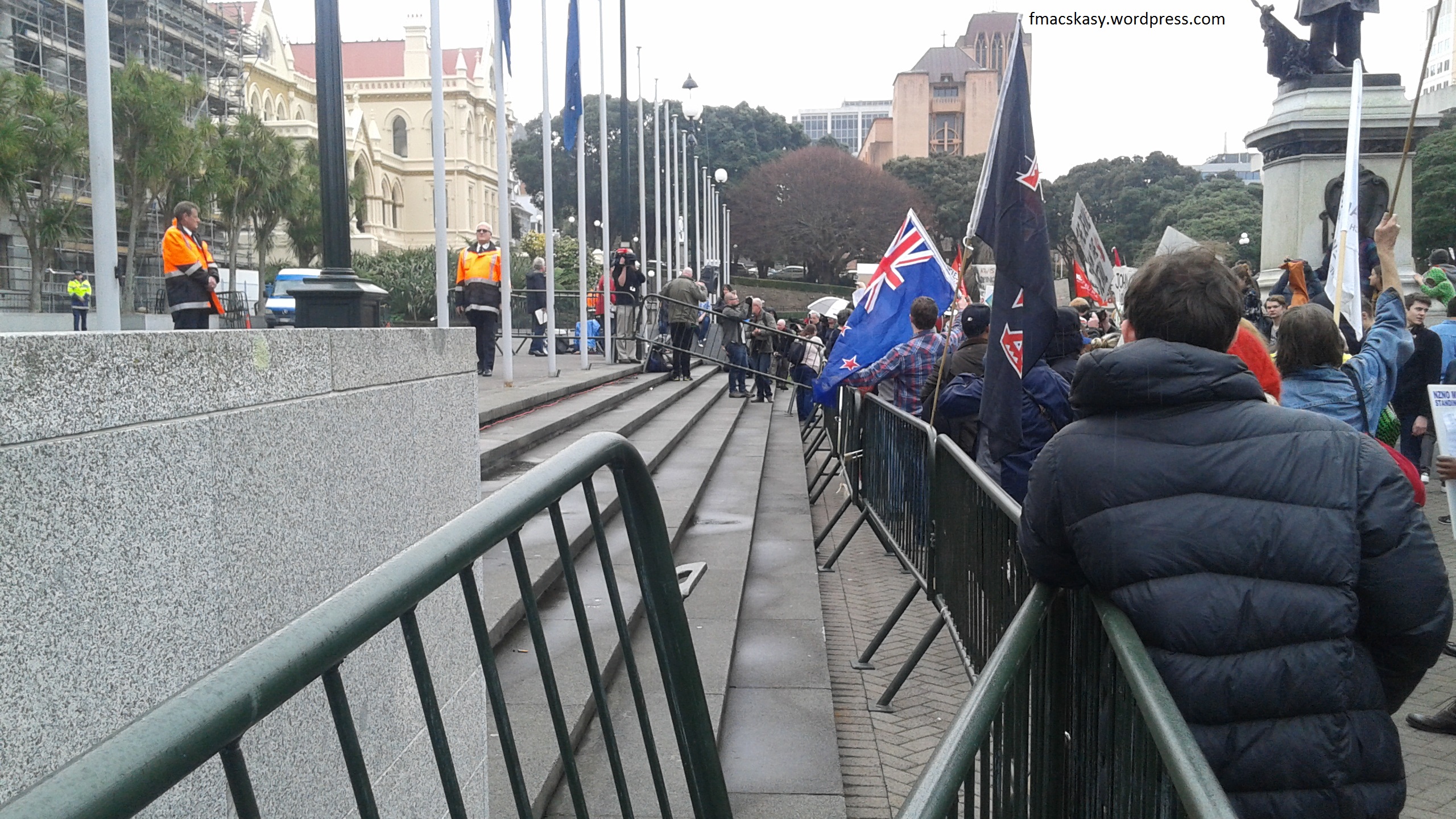
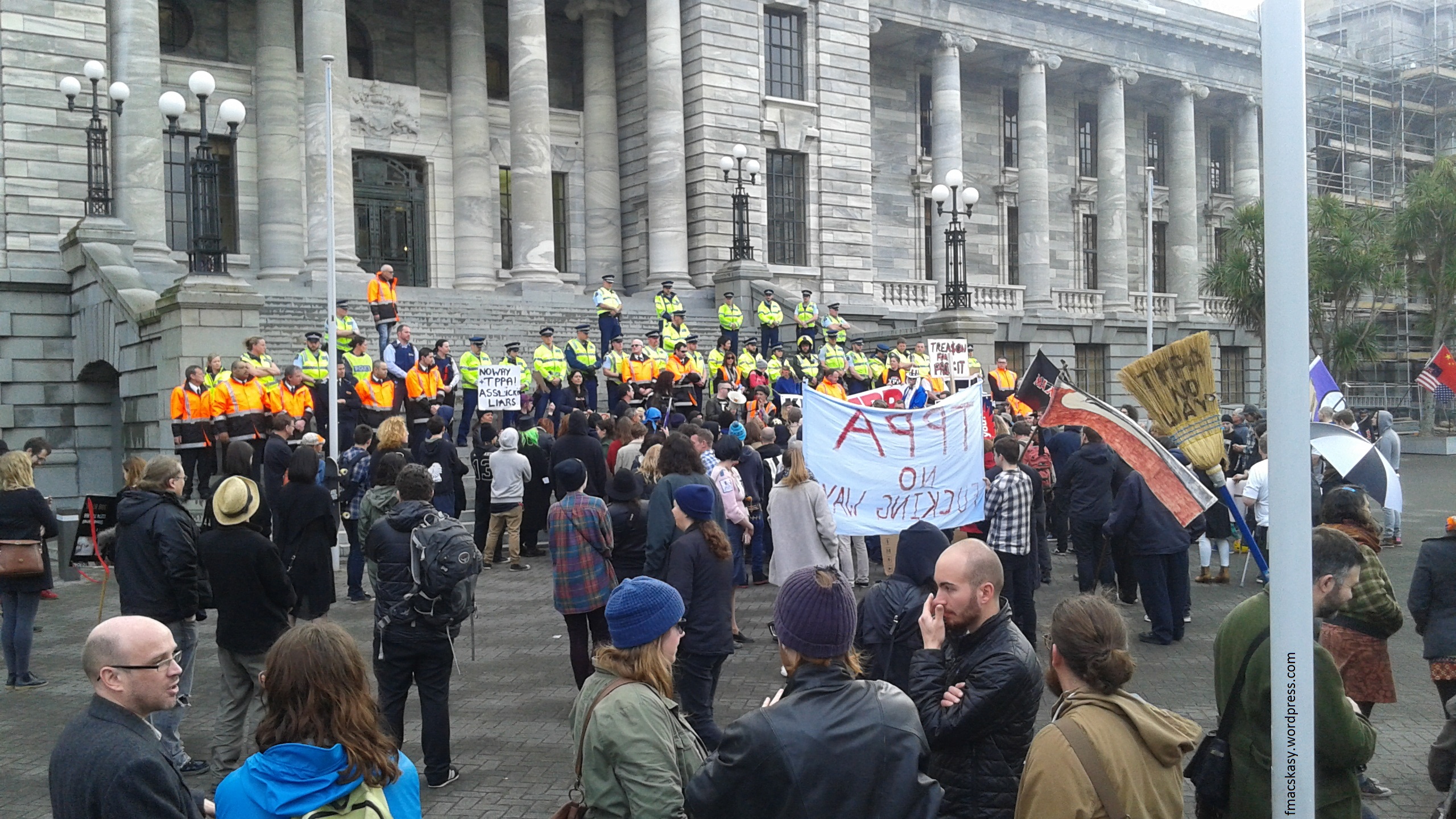
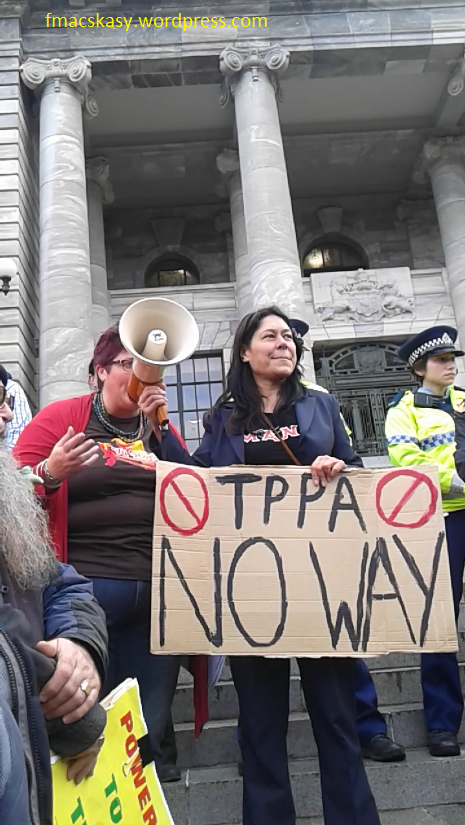
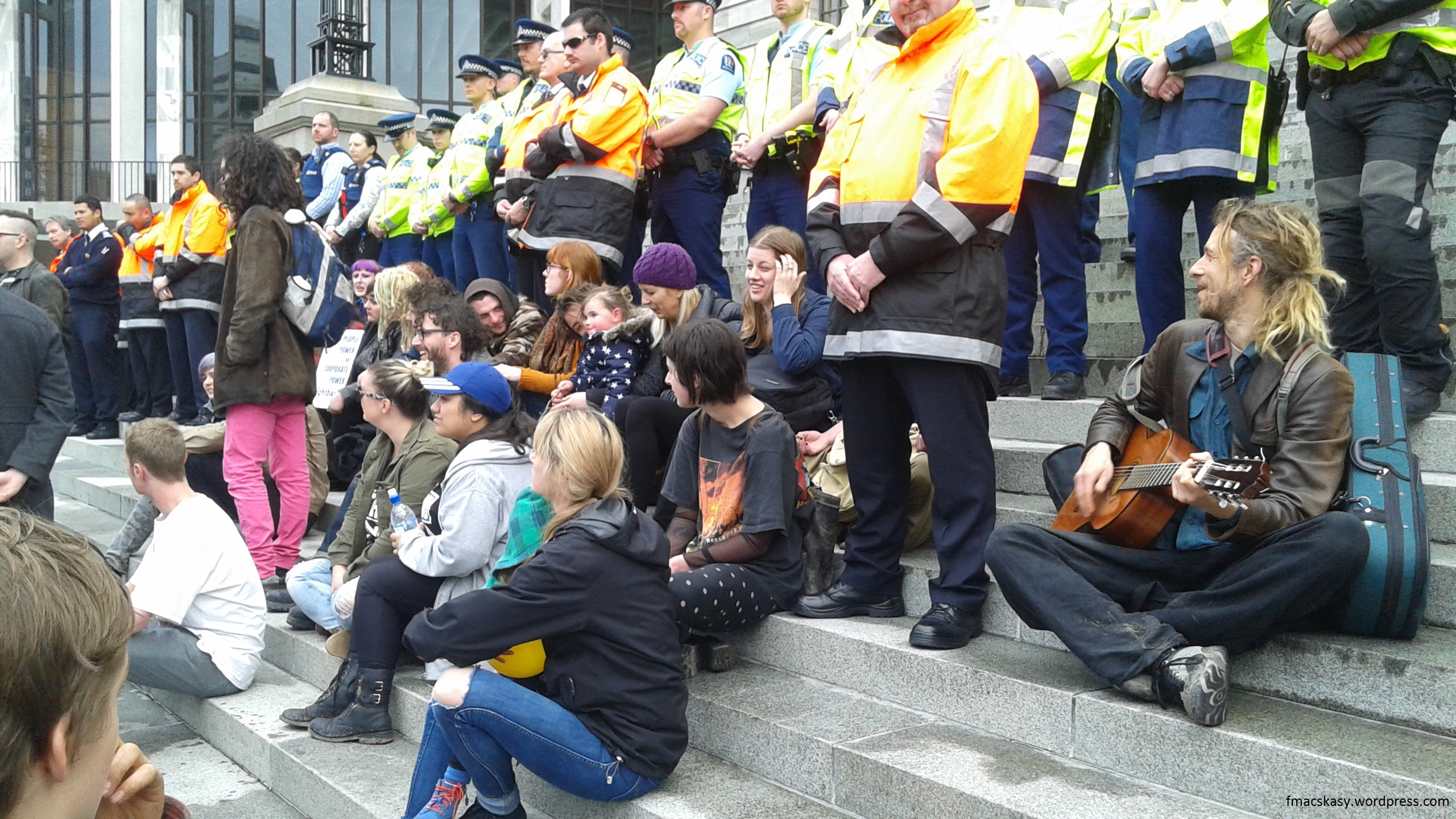
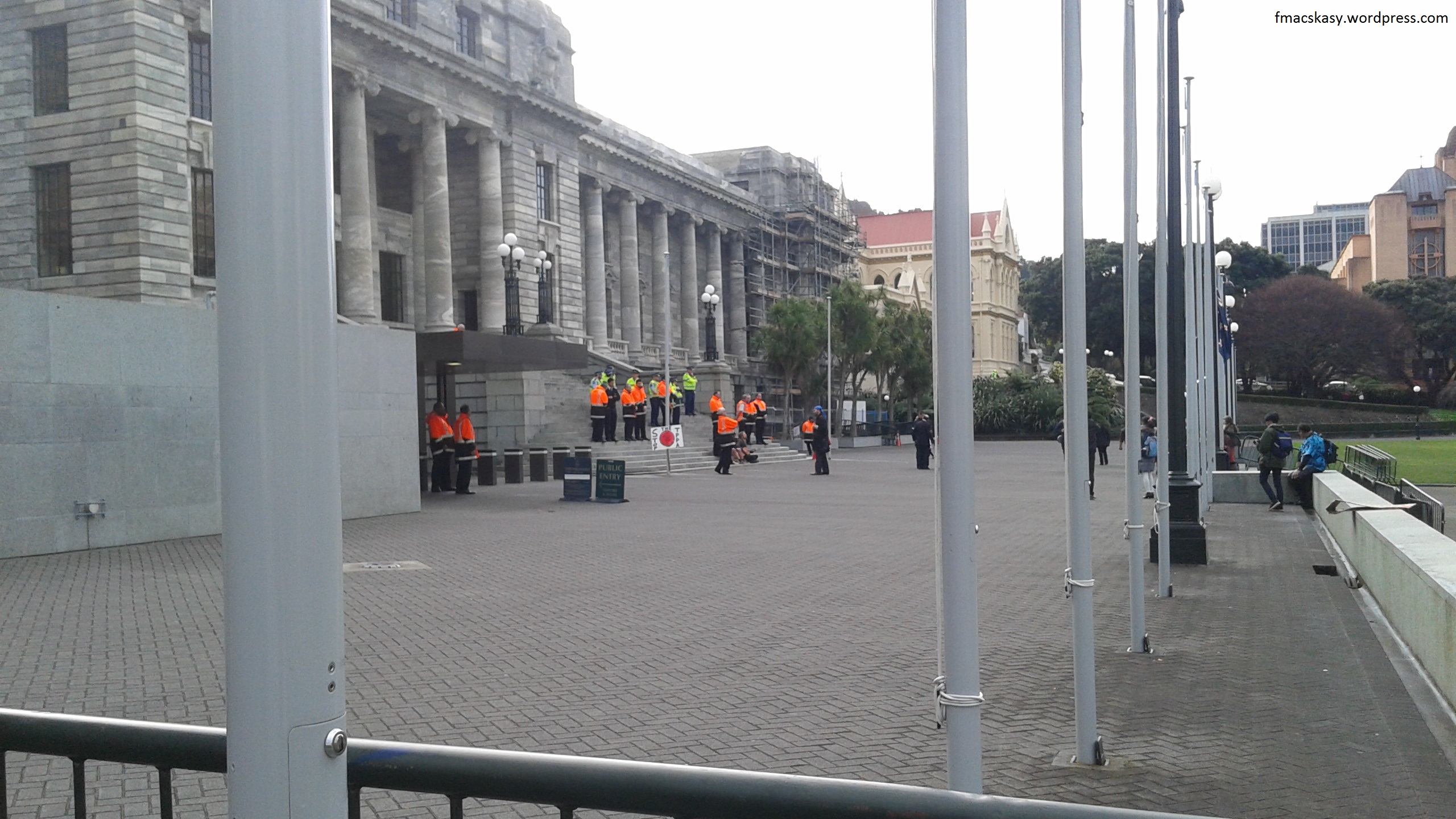
No comments:
Post a Comment
Note: only a member of this blog may post a comment.